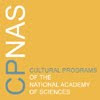From: Richard Twine
Date: Mon, 12 Mar 2007 12:08:18 -0000
Responding to Suzanne Anker's question.
I would say that the main issues remain some of the classic concerns from feminist science studies -
i) the masculinity of scientific practice - several participants have responded positively to the assertion that scientists are as human as the rest of the human race (sorry if I've misquoted that but it's come up a few times). Presumably then there is a context here in which this is a reaction against assertions of the inhumanity of scientific practice. Of course the issue suffers partly from a generalising meaningless but remains in tension with long standing arguments about the privileging of various values - the disavowal of empathy, mastery of nature (and the body essentialised as nature), anthropocentric and utilitarian ethics and so on. Obviously then - as I think Jill pointed out - the issue of gender is of special interest in art/sci interactions. Are there new exclusionary relations at play in terms of which artists are involved in these projects and so on. To what extent is gender an object of exploration in art/sci projects?
ii) the other main issue is that already expressed well in Catherine's post* concerning new modes of harnessing biovalue across reproduction and the consequences this has for women (and indeed the nonhuman female) and social/familial relations generally. Participants have already spoken about the socio-technological construction of foetal citizenship and we can point to other changes such the as the partial technological challenge to heterosexism. Generally we ought to tie in our contemporary analysis to historical work (I'm thinking for example of Adele Clarke's Disciplining Reproduction) and think through continuities/discontinuities with the classic modernist project vis-a-via the gendered biopolitics of bringing reproduction under 'rational' planning and control.
Cheers,
Richard
*in reference to her forthcoming paper with Melinda Cooper.
to post a response, click on the "comment" button below
to return to the main page, go to www.visualcultureandbioscience.org
Subscribe to:
Post Comments (Atom)

No comments:
Post a Comment